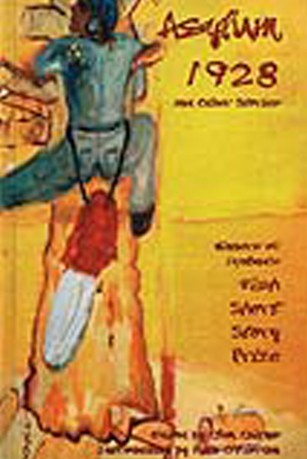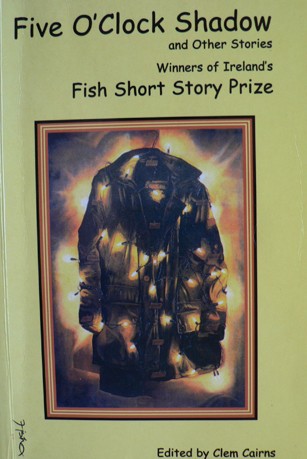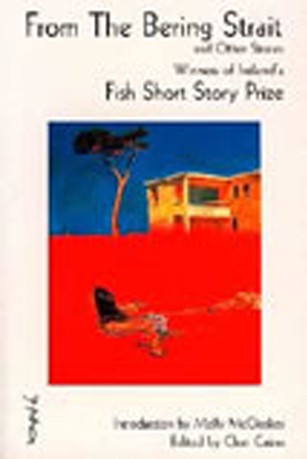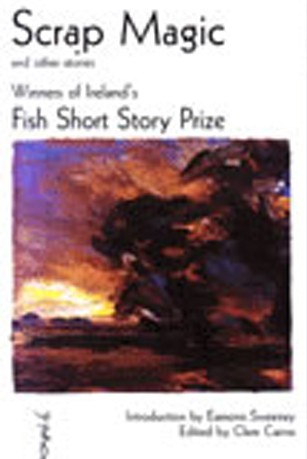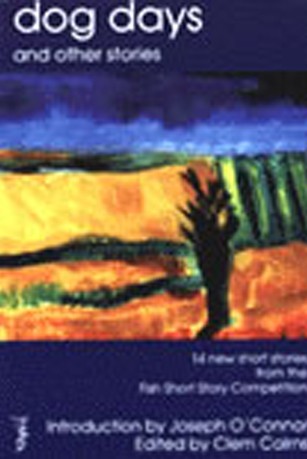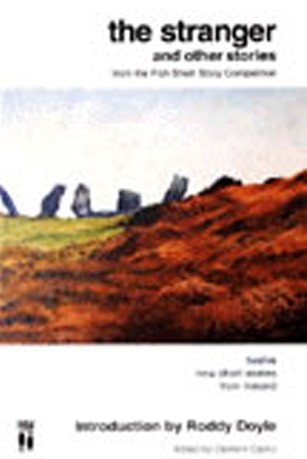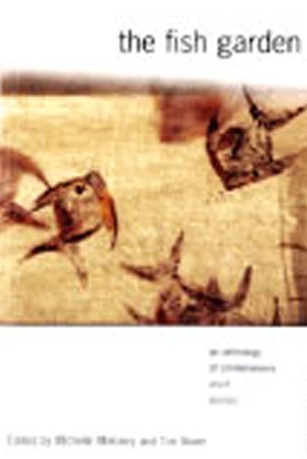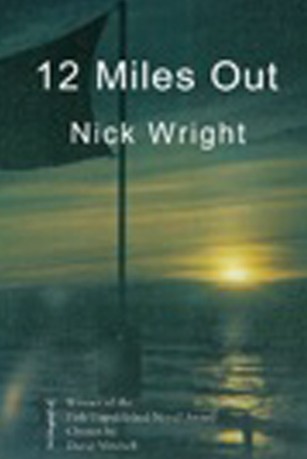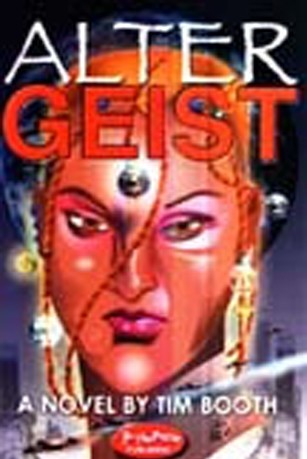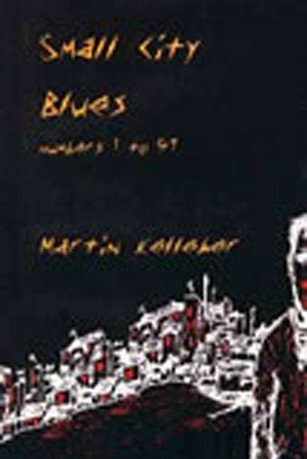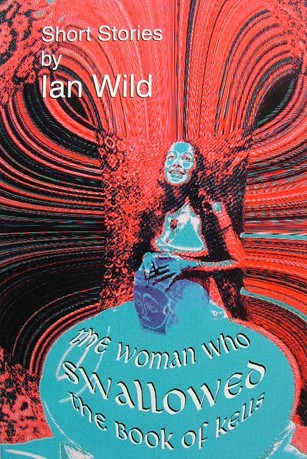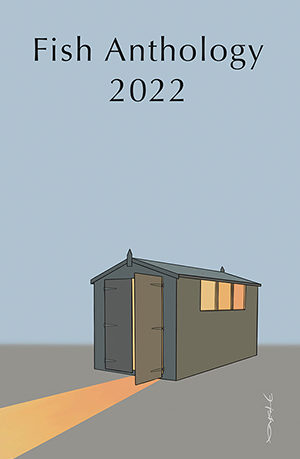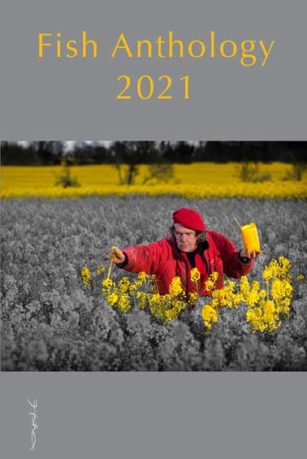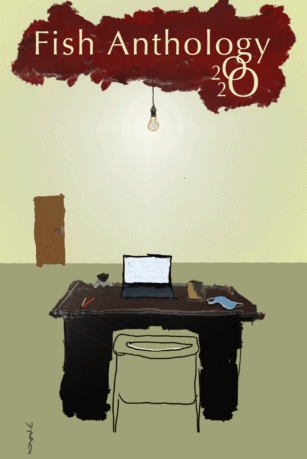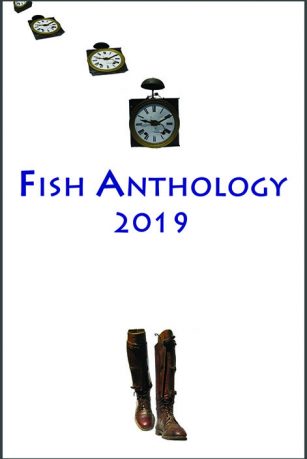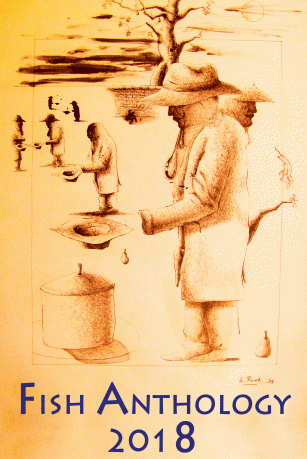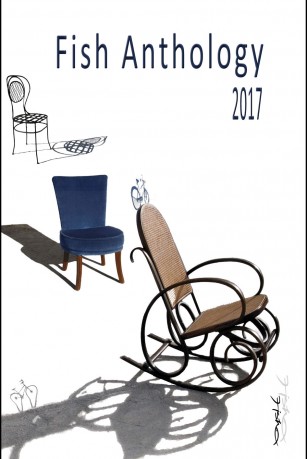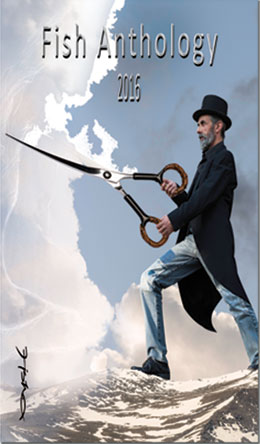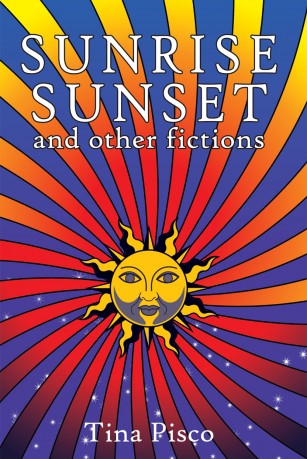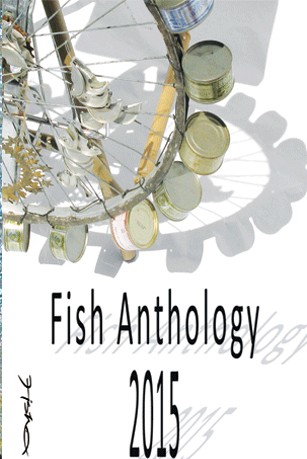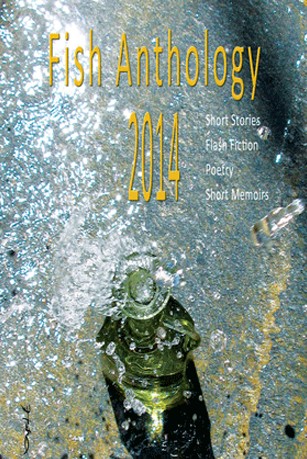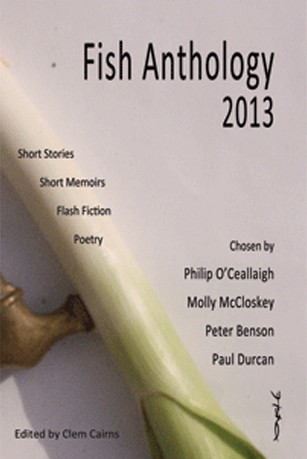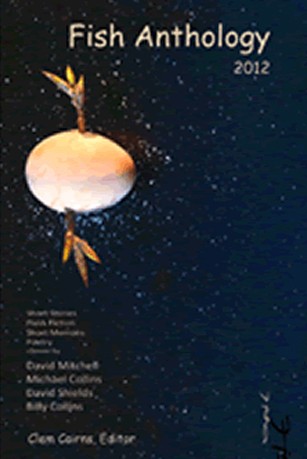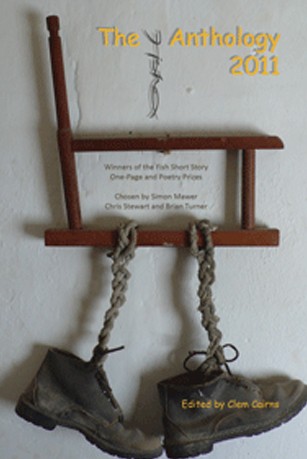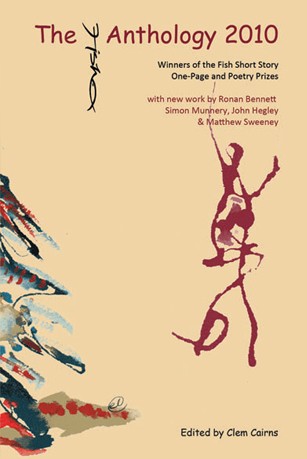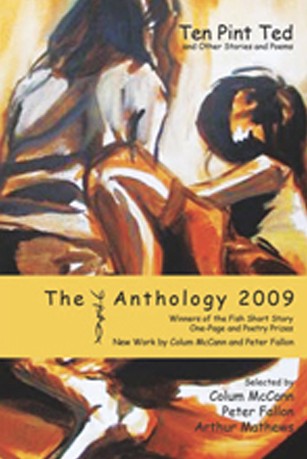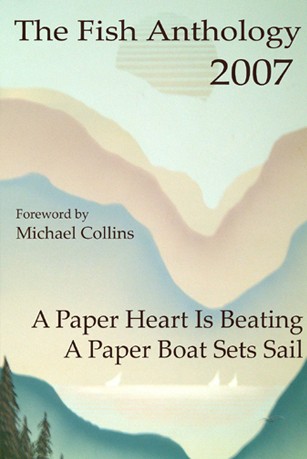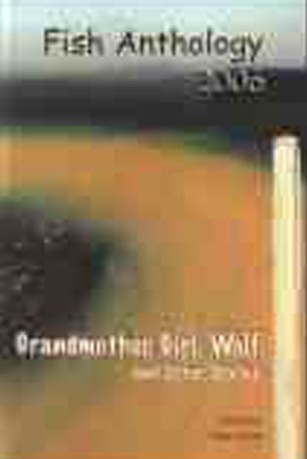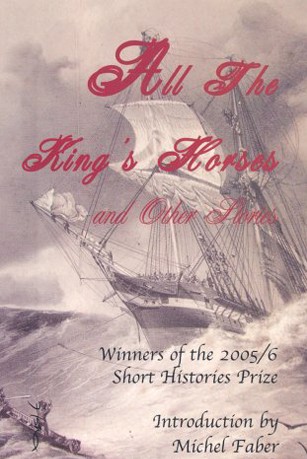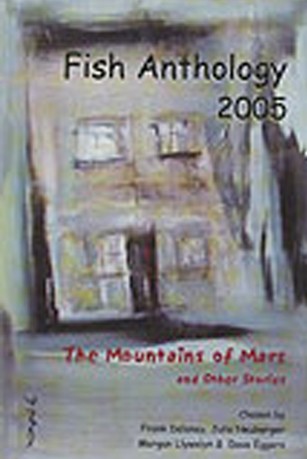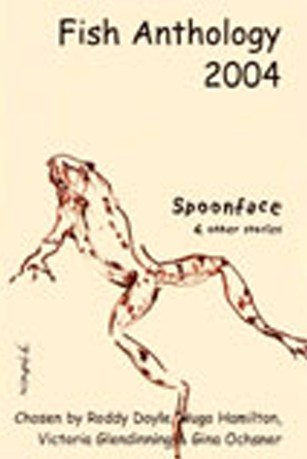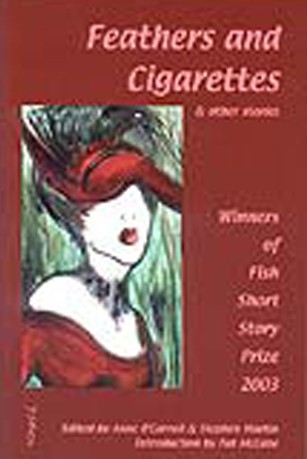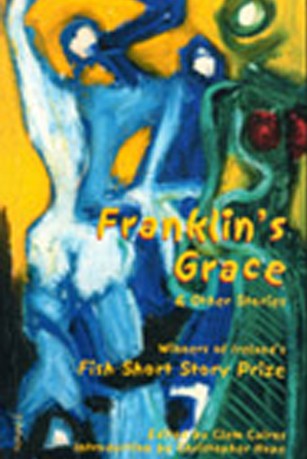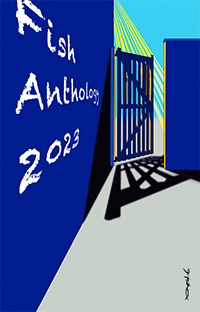
Fish Anthology 2023
ISBN: 978-0-9956200-6-3
SELECTED BY:
Sarah Hall ~ Short Story
Kit de Waal ~ Flash Fiction
Sean Lusk ~ Short Memoir
Billy Collins ~ Poetry
Photos of the books launch will be posted shortly.
Read an excerpt from winning short story – Vietnam by Letty Butler
Read winning flash story – First Steps in Probability by Susan Wigmore
Read an excerpt from winning memoir – My Mother’s Daughter by Anneke Bender
Read winning poem – The Scene Without by Winifred Hughes
Introductory Note
by Clem Cairns
Quotes from Sarah Hall
What a joy! What a joy to experience in these stories the many versions of us, told in so many different ways, small episodes pushing up against big themes, propositions and provocations that expand any restrictions we might make for ourselves, socially, politically, or textually. What a joy to be transported to so many different places around the globe, and into speculative futures, and back into the disputable past.
In this anthology there are ten short stories, ten flash stories, ten short memoirs and ten poems –winners of their respective competitions, with the writers coming from many places around the world. From 5,746 entries, these 40 pieces came through a grueling process and forced their way to the top. The writers here deserve huge credit, each piece is unique and brilliant, and our wish at Fish is that their writing careers continue to flourish.
Sarah Hall judged the short stories, Kit de Waal the flash, Sean Lusk the memoirs and Billy Collins the poems. An enormous thanks to them for their time, attention and wisdom.
This Anthology is a showcase of disquiet, tension, subversion and surprise. So buckle up and enjoy the ride!
Contents
SHORT STORIES |
|
|
Vietnam |
Letty Butler |
|
The Longhouse |
Nicholas Petty |
|
Autophile |
Dylan Garity |
|
Endangered |
Roger Vickery |
|
Fur |
Allegra A Mullan |
|
Hitch |
Emma Neale |
|
Readmission |
Josephine Rowe |
|
The Parts He Missed |
Josh Wagner |
|
The Thing Adored |
Hanako Senzoku |
|
The Watch Case |
Hanako Senzoku |
|
FLASH FICTION |
|
|
First Steps in Probability |
Susan Wigmore |
|
Dynamics |
Barbara P Tarrant |
|
Because it is Impossible and Yet |
Emma Goldman-Sherman |
|
The Hunger Wall |
Mark Bowsher |
|
No! |
Patricia Newbery |
|
I See Jesus in My Fevered Dream on |
Linda Nemec Foster |
|
Witness Statement |
Molly Underwood |
|
The Full Package |
Martin Daly |
|
The Story of Our Beautiful, Smiling |
Kurtis Burton |
|
He Who Dares Wyn Jones |
Ian Johnson |
|
SHORT MEMOIRS |
|
|
My Mother’s Daughter |
Anneke Bender |
|
The Dead on Street View |
Nuala Roche |
|
Escape Van |
Sabine Casparie |
|
A Brown Night |
Thelma McGough |
|
Death by Overwork |
James Scoles |
|
Speaking of Love |
Kathryn Phelan |
|
Of many things |
Dani Salvadori |
|
Bravo India Lima |
Olivia Rana |
|
For Richer, Poorer and Doritos |
Cheryl Miller-Fitzgerald |
|
Except for One Thing |
Thomas Darlington Crancer |
|
POETRY |
|
|
The Scene Without |
Winifred Hughes |
|
Vectors in Kabul |
Mary O’Donnell |
|
Extinction |
Luisa A Igloria |
|
Emozioni |
Steph Ellen Feeney |
|
Rosetta Pebble |
Tania Dain |
|
Aground |
Sharon Black |
|
I explain time travel to my son |
Peter Borchers |
|
Park Protocol |
Scott Renzoni |
|
No Items Match Your Search |
Catherine Spooner |
|
Toccata for Spoons |
Daniel Lusk |
Vietnam (an excerpt)
by Letty Butler
The day we met two things happened: I started going grey and my period came back after six years. It was as if my body woke up and said a-ha, here he isbut at the same time oh shit.
The body always knows.
It was a Christmas party I’d forced myself to go to. I wore a red dress and felt too tall. You stood in front of the microphone and apologised for dressing like Alan Partridge. That was probably the moment.
We went for coffee a week later. I knocked mine over. You ate a chocolate slice with a knife and fork and when I asked you why you said you didn’t know. We talked for two hours. I tried to work out if I liked the strange timbre of your voice, the high pitch of your explosive laugh. I felt you looking through me, beyond the jumper, beyond the skin.
As the cafe closed, you made a casual reference to your partner. I felt ridiculous. We parted in the snow and I shut the box of you in my mind.
You unlocked it five days later with a text. All it said was Happy Christmas. I had a visceral reaction, a tiny explosion somewhere in my gut. I waited and sent one back: Happy Boxing Day. Twenty-four hours later you replied. Happy Post Boxing Dayit said, and I thought I see.
We kept finding reasons to communicate. A book recommendation, a creative opportunity. The smattering of texts became flurries followed by days of silence, most of which I spent berating myself for being so affected by it. I’d just about manage to shut the box again, when you’d send a new offering – a link, a question, a video of snow falling. I would vow not to respond, then draft replies in my mind as I paced the slushy streets of Sheffield. You were a scab I couldn’t stop picking.
We met again, this time for three hours, during which a silent negotiation took place: we would not mention Her.
I became a cliche overnight. I couldn’t eat or sleep. You frogmarched me out of my fussy little life into a kind of glorious hell. The texts came daily. Each one a shot of espresso. You sent songs. I listened to them repeatedly, googled the lyrics and tried to understand you. I had too much energy. I started dancing in the flat. I lost weight. People fretted. It was like a disease.
One Sunday morning, you sent a message asking if I would help with your stand-up routine. You knew my background, had seen the films. I felt important. You arrived, drenched from football, and wrestled your enormous bike into my tiny flat. I sat with my back against the oven and watched your set. I wasn’t sure if it worked but I couldn’t believe your bravery. I would never have taken such a risk in front of a potential lover and took it as confirmation that my feelings were not reciprocated.
But we are not all the same.
And there is no one quite like you.
We got into your Fiat 500 and drove to Clowne in the pouring rain, which you said was funny in itself. You were brilliant that night and I knew I was powerless. In the bar afterwards, all I wanted to do was touch the soft skin behind your ear.
You are so beautiful.
I became your director of sorts. It was strange being back on the circuit, rediscovering the world that almost buried me. I saw it anew, and it was not so terrifying with you in it. Something inside me stirred and whispered the lights, look at the lights.
On the way to gigs, we played Snap!with our life stories. Did we match? Could our lives tesselate? There was a certain freedom about being in the car – two people side by side heading in the same direction. I felt I could ask you anything, so that’s what I did. Excluding the obvious, obviously.
The goodbyes were abrupt and clean. You never touched me. Every time I closed the door, I felt absurd. I was terrified you could sense the depth of my desperation, smell it on me like cigarettes. But I am nothing if not proud. I didn’t linger in the doorway. I took my cues.
First Steps in Probability
by Susan Wigmore
We’re kicking fag packets down the alley behind Tanners Lane and I let you win because I want to tell you I love you, there in the scrubby weeds and litter and dog-piss stink of it, and I do. Love you, Chrissy O’Connor. I love you.
You lean in as if to hug me but instead do that daft tripping thing your dad does and run off laughing. I brush grit from my knees. Your hair is so dark it shines blue like a magpie’s wing. Prove it, you say, when I catch up, your hand already on the Merry Widow’s gate. You push it open. Strung across the yard is a washing line with its straggle of clothes.
A pair of knickers, you say. I dare you.
We know she’s home. We can hear her singing.
There’s ivy on the fence, huge shovel leaves, veins yellow and fine.There’s a tartan peg-bag and tights the colour of toffee, and look, there’s my hand snatching the Widow’s knickers. See the pegs fly! See my pumping heart flow in my veins, Chrissy O’Connor!
You’re by the bin at the town end of the alley where your dad meets his girlfriends. The knickers are saggy and grey. I’ll push them through old Harry’s letterbox, I say. That’ll set tongues wagging.
Silly cow, you say, and run across the road.
We do star-jumps at each other, cars jammed between us, and you hug me when I reach you, my mouth deep in your magpie hair. The thought of kissing you makes me gasp. Your bag slips from your shoulder and you push us both away. In your hand, the Widow’s knickers filched from my pocket. I watch as you chuck them in a skip. Your slow smile. The thrill of it all –
My Mother’s Daughter (an excerpt)
by Anneke Bender
1.
In the picture, my mother and I are walking in the Grand Canyon holding hands. That summer, she worked at the Lawrence Livermore Lab and we had driven across the country to get there, halfway in a bright orange VW bus, halfway in a Corolla hatchback called Blusieafter the old bus “swallowed a valve.” My mother, the biologist, always claimed the best way to study nature was to talk to creatures. I was taken with Native Americans the whole trip, looking at cave dwellings and bright turquoise in silver bell caps. We would stop at trinket stores and I wanted each tiny thing, each stone and bracelet, flute and arrowhead. I imagined living in a cave, tucked in by a fire. Back then my mother called me by the nickname Nic-A-Leeand brushed my hair into pigtails, and I can hardly write these words.
2.
My mother and I walked in the Grand Canyon holding hands, my hair in pigtails and my lanky string-bean legs brushing their bell bottoms together as we travelled down the dusty path. She was a scientist and worked all summer at a lab in California while my dad watched us during the day. We got there in the back of Blusie, camping the whole route in a cross-country family adventure. Blusie’s windshield shattered once pulling into a gas station for cheap gas, because my dad saw the sign at the last minute and turned on a dime. He was always looking for the cheapest gas.
3.
My mother and I walked in the Grand Canyon, my hand in hers, her hand in mine, her bright smile that was always there shining in the sun. We went into the canyon for a bit. Not all the way down, just enough to get our feet dusty. Just enough to put footprints along the path, the way Native Americans put footprints on the same land a long time ago. We had driven there from our home in Atlanta – my brother, my mom, my dad, and me. The long, slow hours passed while my brother and I played 20 questions and looked for license plates from Alaska. The first question my mom always asked after we set up our tent each night was: “Do you want to go explore?” She was always so kind, pushing my brother and I to be curious, to find adventure. She is still kind.
When you are young, you see only the moment; when you are older, you see a story strung together, a line weaving through years during which everything shifts, the slow tide. Glass, in the end, settles downward. It is so strange, is it not, to sit where you are now and see what you were then? A day in the Grand Canyon, my mother holding my hand as we walked the trail. Who took that picture? Surely my dad. Maybe he and my brother were walking ahead, and he turned back for a moment, his thick hands lifting the viewfinder to his eye. My hand lifts to his and together we turn the dial, focus the image until it sharpens the lines memory has frayed. Her kindness – this is the picture.
The Scene Without
by Winifred Hughes
“The scene” is still the same—that’s what you called it,
the view from our back windows that opens in winter
like a spread scroll—the brook that runs free and full, skidding
among stones, browned meadows with their broken stems
and grasses, matted leafmold, woods stripped of cover
spilling pent up secrets, light pallid, whether bleak or tender
only you could have told. You’d still know it instantly—how you
loved the scope of it, the sheer expanse; loved even the battered,
colorless stalks, the twiggy bushes, hollow seedpods—remnants
of your care only last summer, no longer ago than that, now
unbridgeable by any quickening of spring, unimaginable by any
thought of mine. Only this morning I saw a sharp-shinned hawk
gliding overhead, ready to plunge. Before that a fox, uttering
its short, sharp yap, then loping across the yard to re-enact
the primal plot that ends in survival and abrupt extinction.
Small songbirds enact it too, gorging against the cold but not
to the point of slowing their flight from the hawk. Look there—
I want to show you the brown creeper camouflaged against
the mottled bark, until it spirals down to the base of the trunk;
the golden-crowned kinglet flitting skittishly among the bare
branches, picking at lichens; the flicker, with its yellow-shafted wings
and dagger-like bill, drilling for grubs in the half-thawed ground.
I wonder if they might be the same individual birds you saw this time
last year, looking out from these same windows on this winter scene.
I want to tell you that they are all still here, that I am still here, that nothing
has changed—just everything inside the windows, but nothing without.


